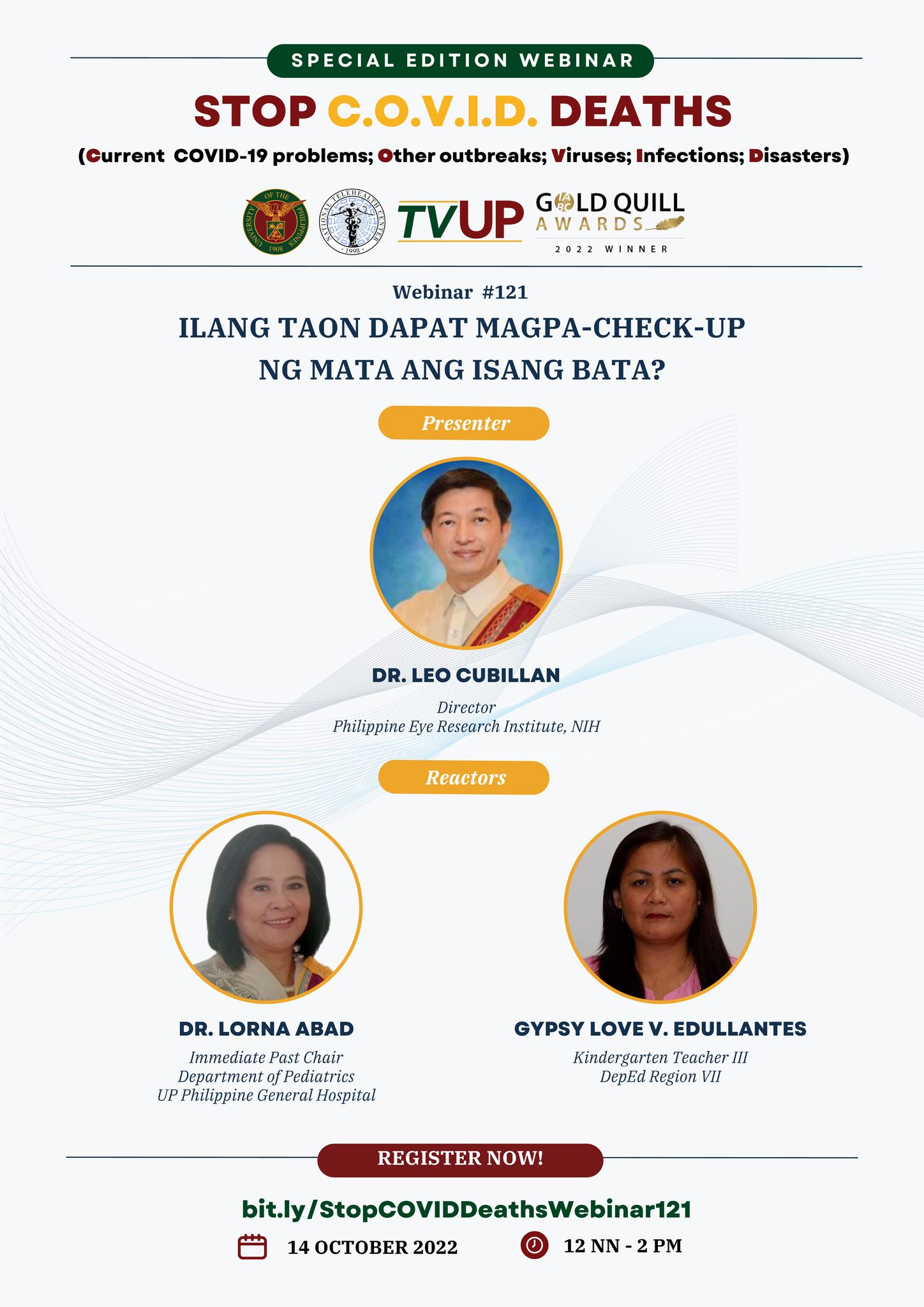Posted on October 13, 2022

This event is FREE and open to the public.
Register at bit.ly/StopCOVIDDeathsWebinar121
Our eyes play a very important role in the quality of our lives. If we are living with an error of refraction and do not know it, our quality of life is compromised and we may be unable to reach our full potential including our ability to learn, work, play and live safely.
According to the World Health Organization, globally at least 2.2 billion people have a near or distance vision impairment. In at least 1 billion – or almost half – of these cases, vision impairment could have been prevented or has yet to be addressed. The leading causes of vision impairment and blindness are uncorrected refractive errors and cataracts.
Myopia (or near-sightenedness) is the most common ocular disorder worldwide, it is the leading cause of visual impairment in children, and its incidence is increasing rapidly. Early diagnosis and corrective lenses is not available to many children who live in disadvantaged settings both in developed and developing countries. Myopia is a major public health concern in many East Asian countries, where the condition affects 80% to 90% of high school graduates. Of these individuals, 10% to 20% have sight-threatening pathologic myopia. Singapore and Taiwan report the highest rates of myopia - affecting 80-90% of the general population. In the Philippines, the national average is about 10%, but in disadvantaged urban areas, it is as high as 20-30%.
Why is myopia increasing? Genetics is usually blamed for the rise in myopia, but recent studies are pointing to the lack of exposure to natural light as a risk factor. Gadgets like computers, pads, and mobile phones consume a lot of time, with less time outdoors in natural light. How soon should visual acuity screening start? What are possible signs and symptoms of visual acuity problems?
Our main presenter is Dr. Leo Cubillian, Director of the Philippine Eye Research Institute, National Institutes of Health, who will walk us through an important project to start visual acuity studies early. We will also be joined by Dr. Lorna Abad, Immediate Past Chair of the Department of Pediatrics at the UP Philippine General Hospital, and Gypsy Love V. Edullantes, Kindergarten Teacher III with DepEd Region VII. The Synthesis and Closing Remarks will be delivered by PGH Coordinator for Training at UP Philippine General Hospital, Dr. Dionne Sacdalan.
Join us as we discuss eye health - and the need to screen for visual acuity sooner rather than later. See you online! Together, we can STOP C.O.V.I.D. DEATHS!
Let's stay connected! Subscribe to our official mailing list at https://groups.io/g/stopcoviddeaths-up-edu-ph.
#StopCOVIDDeaths
#CurrentCOVID19Problems
#OtherOutbreaks
#Viruses
#Infections
#Disasters